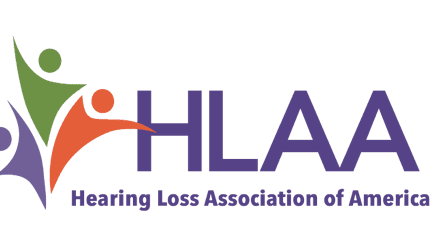Auris Medical Holding AG (NASDAQ:EARS), a Swiss biopharmaceutical company dedicated to developing therapeutics that address unmet medical needs in otolaryngology, announced further clinical results from the HEALOS Phase 3 clinical trial that investigated AM-111 in the treatment of acute inner ear hearing loss and provided an update on the AM-111 development program. While the HEALOS trial had not met the primary efficacy endpoint in the overall study population, according to Auris, post-hoc analyses of top-line data revealed a clinically and statistically significant hearing improvement with AM-111 from baseline to Day 28 in the subpopulation of patients with profound hearing loss (n=98). The AM-111 0.4 mg/mL treatment group showed a mean improvement of 42.7 dB vs. 26.8 dB in the placebo group (p=0.0176). The improvement was 37.3 dB in the AM-111 0.8 mg/mL group (p=0.126). AM-111 was well tolerated and the primary safety endpoint was met.
AM-111 treated patients had a lower incidence of no hearing improvement
Further analyses on the basis of the full data set provide additional confirmation of and support for AM-111’s otoprotective effects in the profound acute hearing loss subpopulation. Patients treated with AM-111 0.4 mg/mL showed a statistically significantly lower incidence of no hearing improvement1 compared to placebo by Day 91 (11.4 vs. 38.2%, risk ratio 0.30, p=0.012). They also had a lower incidence of no marked hearing improvement2 (28.6 vs. 50.0%, risk ratio 0.57, p=0.087). In addition, the significant improvement in pure tone hearing in the AM-111 0.4 mg/mL group was coupled with superior improvement in speech discrimination as the score of correctly recognized words improved by 49.2 percentage points to Day 91 compared to 30.4 percentage points in the placebo group (p=0.062).
“These new data from the HEALOS trial are promising, demonstrating a clinically meaningful hearing improvement in those patients with profound hearing loss,” said Hinrich Staecker, MD, PhD, professor, Department of Otolaryngology Head and Neck Surgery, University of Kansas Medical Center, Kansas City. “Profound sudden deafness can have a major impact on patients’ cognitive and auditory function as well as quality of life. It has a poor prognosis, frequently with little or no hearing recovery, and there are no effective treatments. If approved, AM-111 has the potential to address the unmet need for novel therapeutics which can improve hearing during the acute stage of profound sudden deafness and reduce the substantial risk of severe lifelong hearing impairment.”
Treatment benefit in patients with acute hearing loss consistent with prior Phase 2 data
The results from the profound acute hearing loss subgroup in HEALOS are broadly in line with those observed in the same subpopulation in the prior Phase 2 clinical trial with AM-111 (n=12 for AM-111 0.4 mg/mL and n=10 for placebo). Pooling the data from the two trials shows that hearing improved in the active group by 13.9 dB and 14.5 dB over the placebo group at Days 28 and 91, which is clinically and statistically significant (p=0.017 and 0.020, respectively). The relative risk ratio for no improvement at Day 91 was statistically significant at 0.39 (incidence 14.9 vs. 38.6%, p=0.016).
The Company expects data from a further 31 patients who enrolled in the ASSENT trial with profound acute hearing loss towards the end of the first quarter of 2018. ASSENT is being terminated early in order to avoid the need for substantial protocol changes and interruptions of enrollment pending feedback from health authorities on the regulatory pathway. The Company plans to discuss the accumulated safety and efficacy data and the regulatory pathway with the FDA and EMA in the second quarter of 2018. The data will also be submitted for peer review publication and presentation at a medical meeting in 2018.
“We are very pleased to see further evidence of AM-111’s efficacy in the profound hearing loss patients in the HEALOS trial,” said Thomas Meyer, Auris Medical’s founder, Chairman, and Chief Executive Officer. “The superior improvement in word recognition provides additional support for AM-111’s positive impact on auditory function; the significant reduction in the risk of no improvement shows another otoprotective aspect in this challenging condition. Lastly, the similarity of outcome patterns in the HEALOS and the Phase 2 trial provides further confirmation for AM-111’s therapeutic benefits. We remain dedicated to bringing AM-111 to patients suffering from this orphan disease and look forward to discussing the path forward with the regulatory agencies.”
About the HEALOS trial
The HEALOS trial is a randomized, double-blind, placebo-controlled study evaluating the efficacy, safety and tolerability of AM-111. The trial was conducted in several European and Asian countries and enrolled 256 patients suffering from severe to profound sudden deafness within 72 hours from onset. Patients were randomized in a 1:1:1 ratio to receive a single dose of either AM-111 0.4 mg/mL, AM-111 0.8 mg/mL or placebo, administered into the middle ear.
1 Defined as less than 15 dB according to Siegel’s criteria.
2 Defined as less than 30 dB.
Source: Auris Medical





Hello, I’m Mexican and I have problems with my hears, here in mexico they not want give the solution for my hears and I have 40% lose of hear, if you can help or sale me pills for my hears
Thanks!